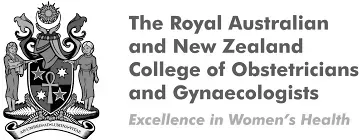Female Infertility
What is Female Infertility?
Female infertility is the inability to conceive after one year of regular, unprotected intercourse or the inability to carry a pregnancy to term. This condition can arise from various factors affecting the female reproductive system. Understanding female infertility involves looking at the complex interplay of hormonal, anatomical, and lifestyle factors that contribute to the ability to conceive and maintain a pregnancy.
Who Are Affected By Infertility?
It is a myth that infertility is always a “woman’s problem.” Infertility affects both men and women, and various factors can cause it.
In about 30-40% of cases, infertility is caused by problems with the male reproductive system, such as low sperm count or poor sperm motility. In another 30-40% of cases, infertility is caused by problems with the female reproductive system, such as ovulation disorders or structural issues in the reproductive system. In the remaining 20-30% of cases, infertility is caused by a combination of male and female factors or is of unknown cause.
It is recommended that you seek medical advice if you are a woman aged below 35 years and fail to conceive after 12 months of contraceptive-free intercourse or if you are aged 35 years and above and fail to conceive after six months to improve your chances of conceiving.
Causes and Risk Factors for Female Infertility
Several factors can increase the risk of female infertility, including:
Age
Women over the age of 35 are at a higher risk of infertility due to the natural decline in the quantity and quality of their eggs. The chances of conception decrease significantly after this age, and the risk of miscarriage and chromosomal abnormalities in the foetus increases.
Lifestyle Factors
- Smoking: Tobacco use negatively affects ovarian function and can lead to premature ovarian ageing and reduced egg quality.
- Alcohol: Excessive alcohol consumption can interfere with hormonal balance and ovulation.
- Weight: Both underweight and overweight women face higher risks of infertility. Obesity can lead to hormonal imbalances and ovulatory dysfunction while being underweight can result in decreased ovarian function.
- Exercise: Excessive physical activity can disrupt hormonal balance and menstrual cycles, affecting fertility.
Medical Conditions
- Polycystic Ovary Syndrome (PCOS): PCOS is one of the most common causes of female infertility, characterised by hormonal imbalance and irregular ovulation.
- Endometriosis: This condition involves the growth of endometrial tissue outside the uterus, causing inflammation, scarring, and blockages in the reproductive organs.
- Thyroid Disorders: Both hyperthyroidism and hypothyroidism can interfere with menstrual cycles and ovulation.
- Primary Ovarian Insufficiency (POI): Also known as premature ovarian failure, POI involves the loss of normal ovarian function before the age of 40.
Environmental Factors
- Exposure to Toxins: Environmental pollutants, chemicals, and radiation can affect reproductive health. Occupational exposure to certain chemicals in industries such as agriculture, manufacturing, and healthcare may also increase the risk of infertility.
- Medications: Certain medications, such as chemotherapy drugs, can damage ovarian function and reduce fertility.
Reproductive History
- Previous Infections: Sexually transmitted infections (STIs), especially if untreated, can cause pelvic inflammatory disease (PID), leading to scarring and blockages in the fallopian tubes.
- Surgery: Previous surgeries on the reproductive organs, including those for ectopic pregnancy or fibroid removal, can affect fertility.
- Recurrent Miscarriages: Women with a history of recurrent miscarriages may have underlying health issues that affect fertility.
Test for Female Infertility
If you have been trying to have a baby without success, you may want to seek medical help. If you are over 35, or if you have reason to believe that there may be a fertility problem, you should not wait for one year of trying before seeing a doctor. A medical evaluation may determine the reasons for a couple’s infertility.
- Ovulation testing: This is most commonly performed with a progesterone blood test one week before the expected menstrual period. At times, ovulation may be assessed with cycle-tracking, which involves measuring levels of oestrogen, progesterone, luteinising hormone (LH), and follicle-stimulating hormone (FSH) in the blood at various time points during the menstrual cycle. This can indicate whether ovulation is occurring.
- Hormone testing: This includes measuring blood levels of oestrogen, progesterone, and testosterone, which can indicate whether hormonal imbalances may be affecting fertility.
- Imaging tests include ultrasound, Sonohysterogram and Hysterosalpingo-contrast-sonography (HyCoSy). These can be used to check for structural problems in the reproductive system, such as blocked or damaged fallopian tubes or uterine fibroids.
- Laparoscopy: This surgical procedure can be used to check for endometriosis or other conditions affecting fertility.
- Hysteroscopy: This procedure is used to look inside the uterus to check for any issues, such as fibroids, polyps, or adhesions.
- Genetic testing: This can be used to check for genetic disorders or chromosomal abnormalities affecting fertility.
- Ovarian Reserve Testing: This includes measuring the levels of anti-Mullerian hormone (AMH) and Follicle-stimulating hormone (FSH), which can indicate the number of eggs a woman has remaining, also known as ovarian reserve. The antral follicle count (AFC) can also be checked via ultrasound.
Treatment of Female Infertility
Lifestyle Modifications
- Weight Management: Achieving a healthy weight through diet and exercise can improve ovulation and fertility.
- Smoking Cessation and Alcohol Reduction: Reducing or eliminating smoking and alcohol intake can enhance fertility.
- Stress Management: Techniques such as yoga, meditation, and counselling can help reduce stress, which may improve reproductive function.
Medications
- Ovulation Induction: Medications like clomiphene citrate, letrozole, or gonadotropins stimulate ovulation in women with ovulatory disorders.
- Metformin: Used for women with PCOS to improve insulin resistance and promote regular ovulation.
- Hormone Therapy: Thyroid hormone replacement or medications to correct hormonal imbalances affecting fertility.
Surgical Interventions
- Laparoscopy or Hysteroscopy: Used to remove fibroids, polyps, adhesions, or endometriosis lesions that may affect fertility.
- Tubal Surgery: To repair blocked or damaged fallopian tubes, improving the chances of natural conception.
Assisted Reproductive Technologies (ART)
- Intrauterine Insemination (IUI): Sperm is placed directly into the uterus around the time of ovulation to facilitate fertilisation.
- In Vitro Fertilisation (IVF): Eggs are retrieved from the ovaries and fertilised with sperm in a laboratory. The resulting embryos are then transferred to the uterus.
- Intracytoplasmic Sperm Injection (ICSI): A single sperm is injected directly into an egg during IVF to aid fertilisation.
- Donor Eggs or Sperm: Used when there are significant issues with egg or sperm quality.
- Surrogacy: An option for individuals who cannot carry a pregnancy themselves for various reasons.
Why Consider Taking Action for Infertility?
Considering taking action for infertility is essential for several reasons. Firstly, age plays a significant role in a woman's fertility, and the earlier an individual or couple seeks help, the better their chances of success will be. Secondly, infertility can be emotionally challenging and stressful for couples, and seeking treatment can help alleviate some of these feelings and provide hope.
Additionally, infertility is a time-sensitive issue; the longer an individual or couple waits to seek treatment, the more difficult it may be to achieve pregnancy.
With the advancement of technology and medical treatments, the chances of success have increased, so seeking early medical help can improve the likelihood of success and reduce the time and cost of treatment.
For some couples or individuals, starting a family may be a personal goal; without the help of infertility treatment, it may not be possible. Infertility treatment can provide an opportunity to fulfil this desire. A fertility specialist can provide comprehensive evaluation, guidance, and support throughout the process, increasing the chances of a successful outcome.



